Resources
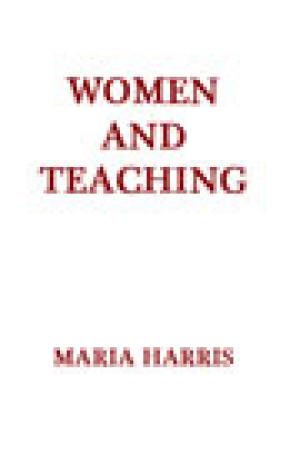
Themes for a Spirituality of Pedagogy (1988 Madeleva Lecture in Spirituality), Maria Harris. An essay that focuses on teaching as a form of spirituality; five different themes that resonate in the lives of women are explored: silence, remembering, ritual mourning, artistry, and birthing. (From the Publisher)
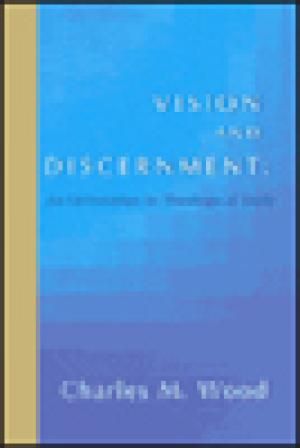
This book offers an orientation in Christian theology, broadly conceived. Its subject is not that single discipline in the theological curriculum to which the title of 'theology' is nowadays often reserved, but rather the whole curriculum, or the whole range of disciplines which together constitute the enterprise of Christian theology, and whose study constitutes theological education. (From the Publisher)
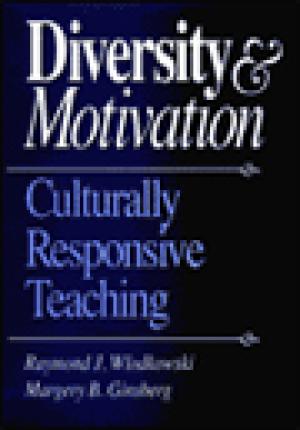
This book provides teachers and trainers with sensitive and practical help in working effectively with groups of culturally diverse learners. Raymond J. Wlodkowski and Margery B. Ginsberg combine their respective expertise in motivation and multiculturalism to go beyond the usual rhetoric on promoting diversity, offering real-world guidance and suggestions for successful teaching in today's changing classroom environment. Using a motivational framework for culturally responsive teaching complete with extensive examples and illustrations, the authors describe the values, learning strategies, and structures necessary to establish inclusion, develop attitude, enhance meaning, and engender competence. By considering a set of eight guidelines, teachers and trainers can learn how to revise syllabus and assessment formats, form cooperative collegial groups, and create action plans for implementing a culturally responsive pedagogy. Diversity and Motivation shows all postsecondary faculty, instructors, trainers, and administrators how to create safe and respectful learning environments with teaching practices that cross disciplines and cultures to engage the motivation and honor the integrity of all learners. (From the Publisher)
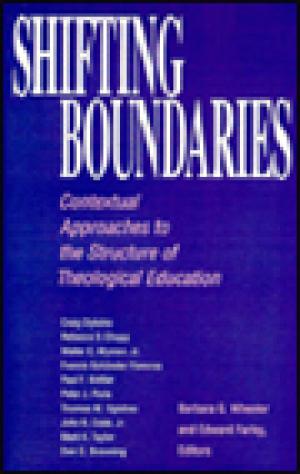
At a time of widespread perplexity about the social role of humanistic scholarship, few disciplines are as anxious about their nature and purposes as academic theology. In this important work, W. Clark Gilpin, dean of the University of Chicago Divinity School, proposes that American theological scholarship become responsible to a threefold public: the churches, the academic community, and civil society. Gilpin approaches this goal indirectly, by investigating the historic social roles of Protestant theologians and the educational institutions in which they have pursued their scholarship and teaching. Ranging from analyses of the New England Puritan Cotton Mather to contemporary theologians as "public intellectuals," Gilpin proposes that we find out what theology "is by asking what theologians "do. By showing how particular cultural problems have always shaped the work of theologians, Gilpin's work profoundly illuminates the foundations of American academic theology, providing insights that will help guide its future. (From the Publisher)
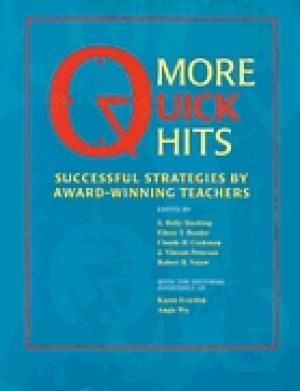
Learning used to be taken for granted by teachers. No more. Growing numbers of teachers realize that teaching does not always promote learning. More Quick Hits offers simple but successful strategies that award-winning teachers have found promote learning. Included among these strategies are tips for designing courses and environments that promote learning, and advice on creating learning communities — communities where not only students learn, but teachers do too. More Quick Hits also includes special sections on service and learning, technology and learning, and using assessment and evaluation for learning. Finally, More Quick Hits offers thoughts on how teachers themselves learn about teaching, including through their mistakes. An annotated "Quick List" of weightier resources on teaching and learning is included at the end of the volume, and "Quick Wits" — words and pictures to both encourage and amuse — are sprinkled throughout the book. (From the Publisher)
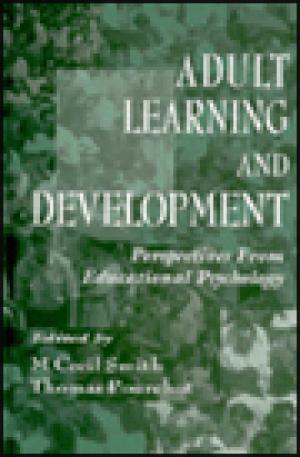
Adult education occurs whenever individuals engage in sustained, systematic learning in order to affect changes in their attitudes, knowledge, skills, or belief systems. Learning, instruction, and developmental processes are the primary foci of educational psychology research and theorizing, but educational psychologists' work in these domains has centered primarily on the childhood and adolescent school years. More recently, however, a number of educational psychologists have studied learning and development in adulthood. The results of these efforts have resulted in what is now called adult educational psychology. The purpose of this volume is to introduce this new subfield within educational psychology. Section 1 focuses on the interplay between learning and development in adulthood, how various forms of instruction lead to different learning outcomes for adults, description of the diverse social contexts in which adult learning takes place, and the development of metacognitive knowledge across the life span. Section 2 describes both research and theory pertaining to adult intellectual functioning, thinking, and problem-solving skills within various contexts. Section 3 describes research in a variety of adult learning domains; discusses the cognitive and behavioral dimensions of reading in adulthood and the applications of reading in real-life circumstances; examines an educational intervention developed to promote forgiveness; and relates the outcomes of an intervention designed to educate parents about their children's mathematics learning. Section 4 summarizes the themes and issues running throughout this, the first book that has sought to span the gulf betweenadult education, adult development, and educational psychology. (From the Publisher)
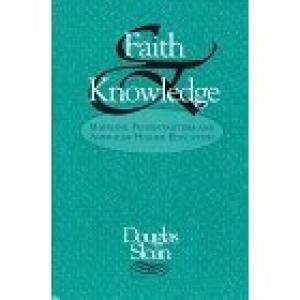
Sloan explores the impact that the Protestant theological renaissance (1925-1960) had on American colleges and universities, focusing in particular on the church's most significant claim to have a continuing voice in higher education. He traces the role of the national ecumenical and denominational organizations, and studies the changing place of college chaplains. (From the Publisher)
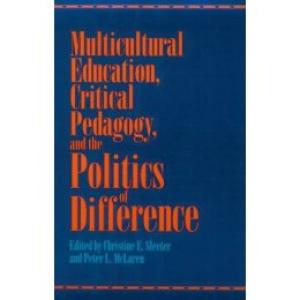
Here is a comprehensive view of leading theories and practices of multicultural education from scholars of various racial and ethnic groups. The perspectives of those often left out of scholarly debate are well represented in this book. Those perspectives offer significant insights into the ways in which dominant ideologies and classroom practices have functioned to serve only one segment of the American population. (From the Publisher)
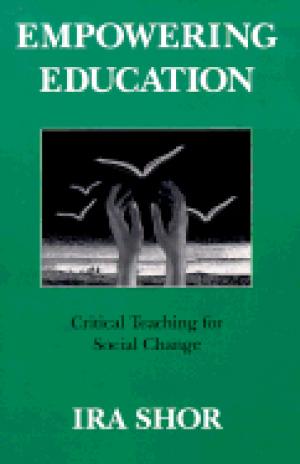
Ira Shor is a pioneer in the field of critical education who ror over twenty years has been experimenting with learning methods. His work creatively adapts the ideas of Brazilian educator Paulo Freire for North American classrooms. In Empowering Education Shor offers a comprehensive theory and practice for critical pedagogy. For Shor, empowering education is a student-centered, critical and democratic pedagogy for studying any subject matter and for self and social change. It takes shape as a dialogue in which teachers and students mutually investigate everyday themes, social issues, and academic knowledge. Through dialogue and problem-posing, students become active agents of their learning. This book shows how students can develop as critical thinkers, inspired learners, skilled workers, and involved citizens. Shor carefully analyzes obstacles to and resources for empowering education, suggesting ways for teachers to transform traditional approaches into critical and democratic ones. He offers many examples and applications for the elementary grades through college and adult education. "One of the most intelligent discussions of the unique function of education in a democratic society since the work of John Dewey. This theoretically compelling and practically useful book addresses the economic, political, and personal needs of students. Shor has emerged as the most reliable discussant of the uses of the work of Paulo Freire in the U.S."--James Berlin, Purdue University Ira Shor, professor of English at the Graduate Center of the City University of New York and the College of Staten Island, is author of Critical Teaching and Everyday Life, and Culture Wars: School and Society in the Conservative Restoration, 1969-1984, both published by the University of Chicago Press. (From the Publisher)

Questions about education for Christian ministry are currently the subject of lively debate in both Church and society. Major constructive proposals have been made from within several church traditions. Though Catholics have been a part of those ecumenical discussions, they are only beginning to contribute from their rich resources. This work is a dialogue with the questions and issues already raised in other traditions, with special attention to the contribution a Catholic perspective can offer. Education for Ministry asks questions about the whole range of ministerial activities that are coming to life in the Roman tradition in North America. It provides students with an opportunity to reflect on their preparation for a life of ministry. (From the Publisher)